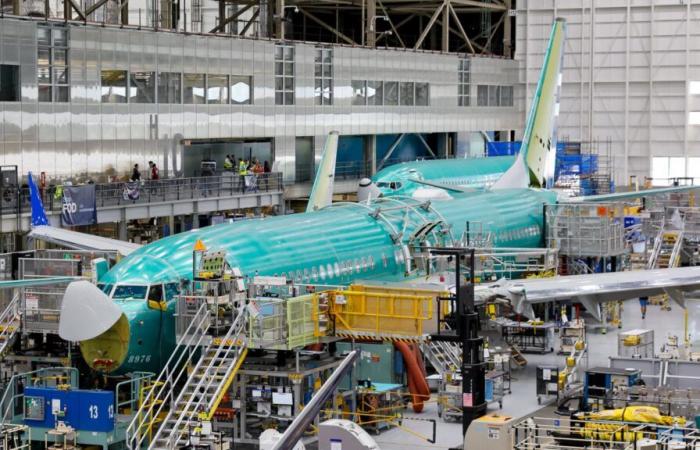The FAA is demanding a “fundamental cultural change” from Boeing.
The American aircraft manufacturer Boeing must change its corporate culture to prioritize safety rather than profits, said the head of the American aviation regulator (FAA) late Thursday, a year after an incident on board a plane. Alaska Airlines.
“What is needed is a fundamental cultural change at Boeing, focused on safety and quality rather than profits. This will require sustained effort and commitment from Boeing, as well as unwavering oversight of our leaves”, wrote Mike Whitaker, the head of the FAA, the American regulator of the aviation sector, on a blog.
Boeing has been going through a difficult time for many months, marked by production quality problems. These were brought to light on January 5, 2024, when a door tore off in mid-flight on an Alaska Airlines 737 MAX 9, causing some minor injuries.
After this incident, the FAA launched an audit on the quality of the aircraft manufacturer’s production and notably gave it 90 days to develop a “comprehensive action plan” to clean up the quality of its production.
The FAA has also capped production of the 737 aircraft at 38 units per month, a rate that the manufacturer has not actually reached in 2024 due to the slowdown of its assembly line to implement new safety and security measures. compliance.
Boeing highlights its progress
“Boeing strives to make progress in executing its comprehensive plan in the areas of safety, quality improvement and effective employee engagement and training (…). Our enhanced monitoring is here to stay,” added Mike Whitaker, for whom this change will not take “just a year.”
For its part, Boeing published on Friday an overview of the actions it has implemented over the past year to improve quality in its factories.
The group notably reduced “significantly the defects in the assembly of the 737 fuselage at Spirit AeroSystems by increasing inspection points on construction sites”, he argues.
The aircraft manufacturer also explains that it has strengthened the training of its mechanics and quality inspectors.
In addition to production quality problems, the aircraft manufacturer suffered a strike in 2024 lasting more than 50 days which paralyzed two crucial factories.
In the process, it announced in mid-October its intention to reduce its global workforce by 10%. At the end of 2023, it employed nearly 171,000 people.






